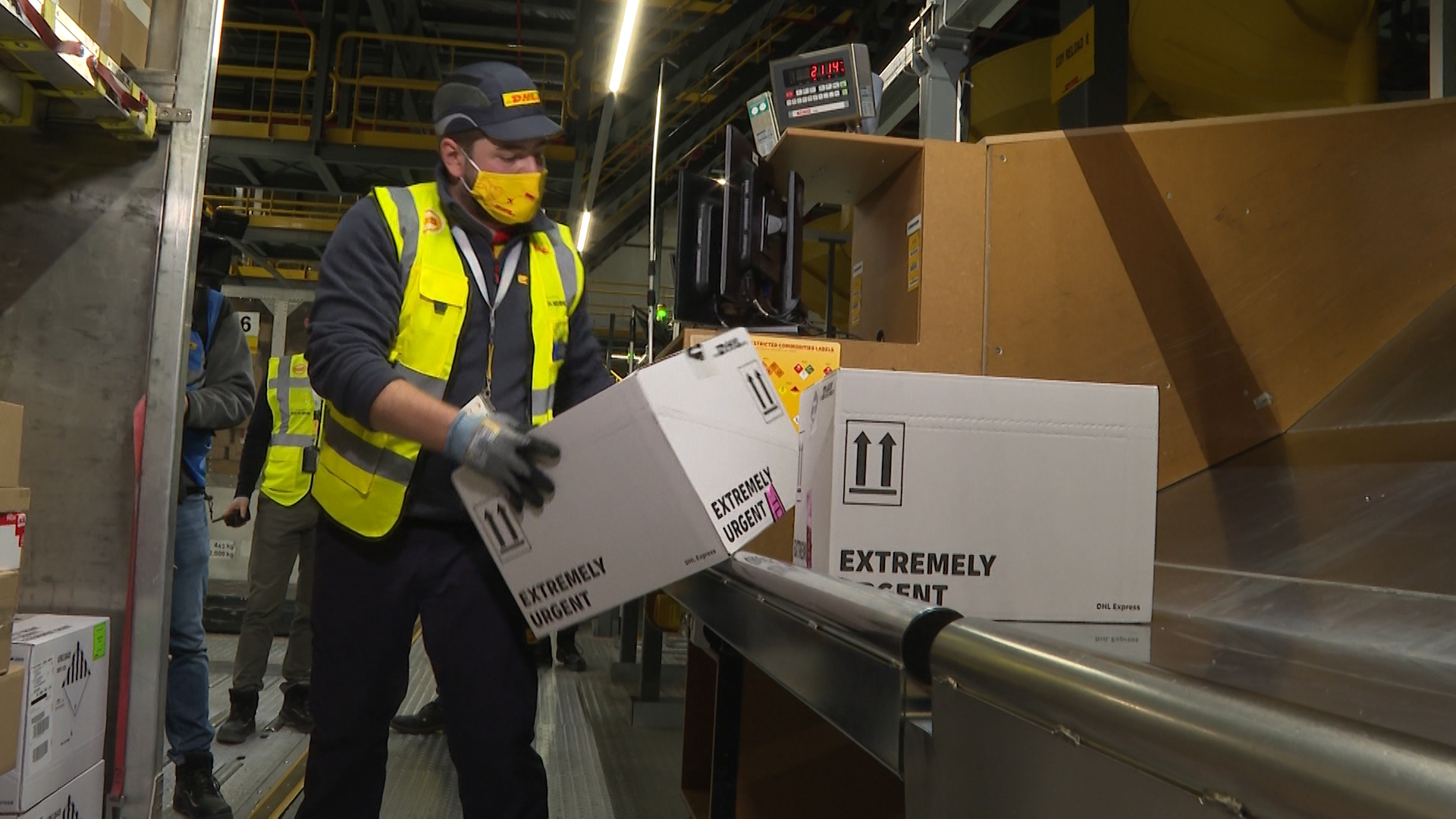02:46

It has been all hands on deck for months. Brussels Airport staff, logistics companies, and dry ice handlers have all been painstakingly preparing for what's been called "the mission of the century."
"It's a big logistical challenge. Some people call it the biggest product launch in history," said Nathan De Valck, head of cargo product and network development at the Brussels Airport.
Never before has a single product been launched globally, sought after in every corner of the planet. Up to 50 percent of coronavirus vaccines are expected to be transported by plane. It's a formidable task, even for the most experienced cargo companies.
"The volumes here will be huge, huge, huge – a tsunami of vaccines coming through this airport," said Geert Keirens, director of Air Cargo Belgium, during a tour of the DHL facility at the Brussels Airport. "If you're not prepared for a tsunami then you get lost."

A DHL worker handles a mock up vaccine box at Brussels Airport. /Reuters
A DHL worker handles a mock up vaccine box at Brussels Airport. /Reuters
To work out the kinks, employees at the DHL hub have been testing various scenarios, each one tailored to the transport requirements of the most promising vaccine candidates.
When the mock-up jabs arrive, they are offloaded, run through the sorter and circulated through the high-speed maze of conveyor belts and shoots before being put on cargo planes for distribution. When fully operational, the facility can process 30,000 pieces an hour.
Time is of the essence. The smoothness of the process at airports will determine the pace of global vaccination.
"One thing we learned was maintaining the speed in the process when the shipment transits through the airport and that means eliminating all bottlenecks in the system and identifying weak links in the supply chain," said De Valck. "Simplifying the processes and making sure they're very robust when it comes to temperature control."

A worker adds dry ice to mock up vaccine boxes at Brussels Airport. /Reuters
A worker adds dry ice to mock up vaccine boxes at Brussels Airport. /Reuters
Temperature control the major challenge
Temperature control is without question the biggest challenge. The Pfizer/BioNTech jab needs to be stored as low as minus 80 degrees Celsius. Others, such as the Moderna and AstraZeneca jabs need their vaccines kept just above or below freezing. It requires constant monitoring. Data will be collected at every step of the process and if things get too hot, massive chests of dry ice are on hand to restore the Arctic chill.
"Dry ice can last from a couple of hours to up to 10 days, depending on the packaging material used. And this packaging allows us to transport the vaccine to more remote areas," said Tom Heymans, owner of Hazgo Belgium, a company that specializes in transporting special goods.
Brussels Airport will be a main distribution hub for vaccines traveling in and out of Europe. It already transits 20 percent of the global supply of vaccines and has more than 30,000 square meters of temperature-controlled warehouses.
"It feels a bit like the final test we're preparing for. We have learned a lot going through that process and we are ready to start handling live shipments," said De Valck.

Workers load cargo for shipping at Brussels Airport. /CGTN
Workers load cargo for shipping at Brussels Airport. /CGTN
Some vaccine shipments have already taken place, positioning small quantities of the vaccine for quick delivery once they're approved for use. But large-scale distribution isn't expected until January, when cargo planes will be carrying some of the most precious cargo ever transported.

